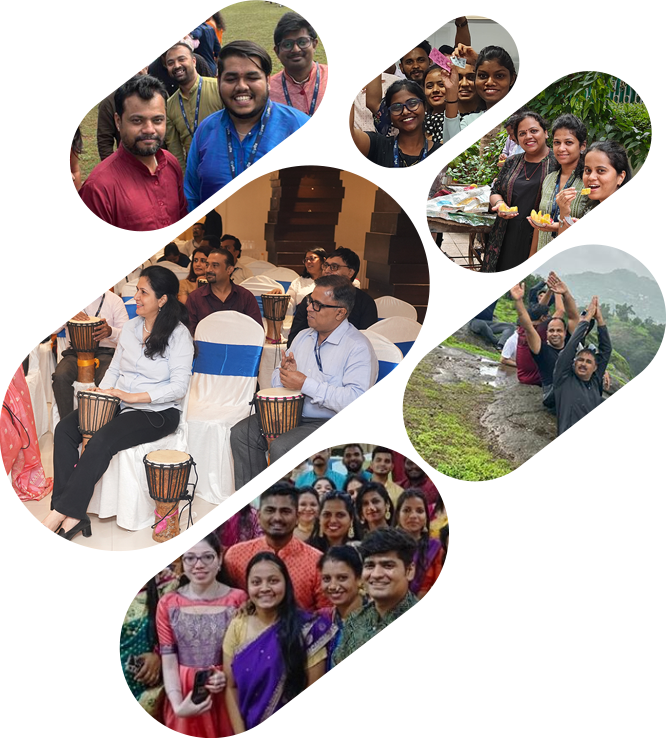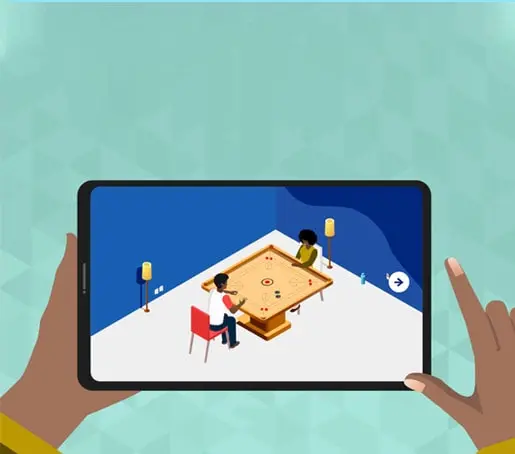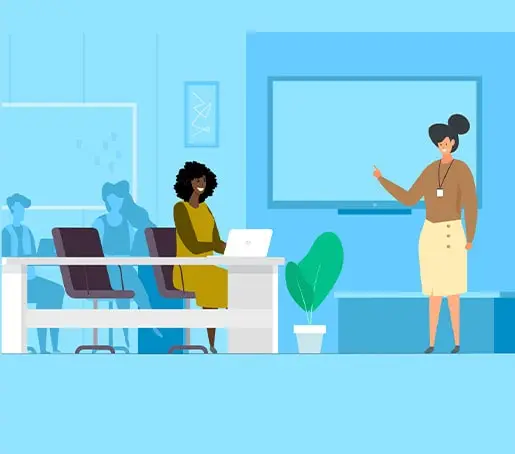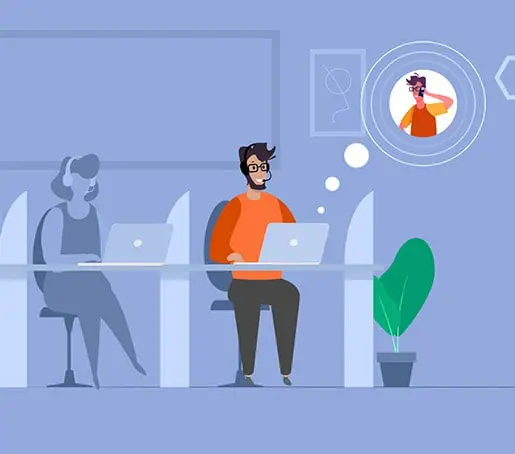
The job industry in India is highly competitive, with a teeming pool of qualified candidates eyeing the position you plan to apply for. Today, it takes more than just studying hundreds of LeetCode questions to crack a software engineer interview. It is not enough that you possess the necessary skill set. Still, you must communicate and present yourself in a manner that appeals to your potential employer during the interview process.
If you're exploring technology jobs in India, standing out requires a strategic blend of skills, preparation, and confidence. Software engineering tasks are broadly classified into general-purpose programming and field-specific tasks. An interviewer assesses your coding acumen, technical skills and problem-solving skills that apply to both classifications.
Whether you're just starting or aiming for mid to senior software engineer interview preparation, a structured and focused effort is key.
Recruiters frequently inquire about a wide range of topics, spanning technical to behavioural aspects, for software development roles that encompass all-inclusive responsibilities. The development process may diverge significantly in certain instances, prompting recruiters to tailor their questions accordingly.
This blog is a playbook of tips and strategies on how to prepare for software engineering interview roles, specifically in the highly competitive job market of India.
Best Practices for Software Engineer Interview Preparation
Before stepping into a software engineer interview, it’s crucial to prepare strategically, both technically and mentally. These software engineer interview preparation tips will help you approach each round with clarity and confidence.
Whether you're switching domains or advancing your career, adopting effective job search strategies can dramatically improve your outcomes.

Preparing for a software engineering interview begins with understanding the structure of the process. Most companies in India follow a multi-stage approach:
- Resume Screening: Recruiters evaluate your technical experience, projects and education.
- Online Assessment: A coding round that tests your problem-solving, data structures and algorithm skills on platforms like HackerRank or CodeSignal.
- Technical Interviews: You’ll be asked in-depth questions on your tech stack, system design and real-world coding problems.
- Behavioural or HR Interviews: Here, your communication skills, work ethic and team compatibility are assessed.
- Managerial/Final Round: HA holistic evaluation of both technical and soft skills, often involving project discussion or negotiation.
This structure forms the foundation of adequate interview preparation for software engineer roles across various company levels.

Your resume is your first impression. A well-structured software engineer resume should highlight:
- Your core technical skills (languages, frameworks, tools)
- Notable projects with GitHub links
- Any internships or freelance work relevant to the role
- Quantifiable achievements (e.g., “Improved API response time by 35%”)
Avoid vague descriptors like "hardworking" or "team player" without evidence. Instead, showcase results-driven narratives and tailor your resume to match the job description.
For example, if you're applying to a role at a company like HGS India, emphasise skills like OOPS, RESTful APIs and AJAX if they’re part of the role expectations. This is especially important for those engaged in software developer job interview preparation, where clear project ownership often tips the scales in your favour.
Recognise the Job Requirements
Every software engineering role demands a specific skill set. For instance, IT service management companies like HGS prefer software professionals who have a sound knowledge of the Object-Oriented Programming (OOP) concept and AJAX. You must understand the requirements to tailor your preparation accordingly. Tailoring your preparation increases your efficiency and effectiveness, as you can focus on the relevant areas for the position.
A proper understanding of the job description helps you showcase relevant projects, accomplishments and technical achievements that match your recruiter's needs. By drawing parallels between your experiences and the job requirements, you demonstrate your ability to meet the company's needs and provide value to their team.
Familiarity with the job requirements empowers you to field thoughtful and relevant queries. Asking about the team's technical stack, potential projects or how the company handles specific software development challenges demonstrates your genuine interest and commitment to the role. Engaging the interviewers with pertinent questions leaves a lasting impression and maximises your chances of getting shortlisted.
Review Key Concepts
Having a firm grasp of critical software engineering concepts is half the job done. Remember that your recruiters are seasoned professionals who cannot be convinced by rote memorisation but by an in-depth understanding of all the fundamentals. It is one of the software engineer's must-have skills.
A deeper understanding of all the engineering fundamentals empowers you to think critically and develop effective problem-solving skills. You will likely encounter various challenges in interviews, from algorithmic puzzles to system design scenarios. When you understand the underlying principles, you can break down problems into manageable components, apply the appropriate techniques and arrive at practical solutions
A firm grasp of these areas is crucial for anyone wondering how to prepare for technical interview software engineer roles.

Coding Exercises
Problem-solving is at the heart of software engineering and is what employers value most. Coding exercises are tangible ways to demonstrate this skill before recruiters.
The practices are designed to simulate real-world scenarios that software engineers face daily. These problems range from simple algorithmic puzzles to complex system design challenges. Engaging in these exercises enables candidates to demonstrate their analytical thinking, creativity and ability to devise efficient solutions.
During the process, recruiters test the correctness of your code and your approach towards it, which is crucial for a successful career in software engineering.
Study System Design
In software engineering, system design involves designing scalable, efficient and reliable solutions to complex problems. It encompasses designing various software systems, including web applications, distributed systems and databases. Studying system design equips you with the knowledge to optimise and make systems functional, which is crucial in modern tech environments.
You must articulate your design decisions during software engineer interviews and communicate effectively with interviewers. It is a skill highly regarded in a team setting, where engineers collaborate to build large-scale systems.
Identify Key Areas to Improve
Self-evaluation is a powerful tool during interview prep. Use feedback from mock interviews or online coding platforms to identify:
- Topics where you're consistently weak (e.g., recursion, dynamic programming)
- Technical questions you tend to fumble
- Communication or behavioural responses that need refinement
Keep a preparation log and revisit challenging topics periodically to reinforce your understanding. If you're applying for backend roles, focus on database design or concurrency. For frontend roles, brush up on UI frameworks and browser rendering optimisations. This level of introspection is crucial if you’re unsure how to prepare for software developer interview challenges effectively.

Mastering the Technical and Behavioural Aspects
Most candidates focus solely on technical know-how, but employers equally value behavioural skills. Expect questions like:
- "Describe a time you disagreed with a team member. How did you handle it?"
- "Tell me about a project that didn’t go as planned."
Use the STAR (Situation, Task, Action, Result) framework to structure responses. This demonstrates clarity, maturity and problem-solving skills that extend beyond coding.
On the technical side, rehearse explaining your approach aloud to ensure clarity and precision. Interviewers want to hear your thought process as much as they care about the final solution.
Stay Up to Date
The tech industry evolves rapidly. Today’s innovation is redundant tomorrow. Such dynamism makes it extremely important for aspiring engineers to stay on top of industry trends.
Besides staying updated, candidates must have hands-on experience with the latest tools to demonstrate their adaptability and willingness to learn, setting them apart from other applicants.
Behavioural Skills
Technical expertise may get your foot in the door, but strong behavioural skills are often what seal the deal in a software engineering interview. Recruiters assess how well you collaborate with teams, manage stress, adapt to changes and communicate effectively under pressure.
Some key behavioural competencies to focus on include:
- Teamwork and Collaboration:Most tech projects require close interaction with designers, product managers and other developers. Highlight experiences where you worked cross-functionally or resolved team conflicts constructively.
- Adaptability:The tech landscape evolves rapidly. Share how you adapted to new tools, tech stacks or last-minute project pivots.
- Accountability and Ownership:Employers want engineers who take responsibility for their code. Talk about a time you owned a project or debugged a challenging issue end-to-end.
- Growth Mindset:Share examples where you received constructive feedback, took it seriously and used it to grow. This reflects maturity and a willingness to learn.
- Time Management:Being able to juggle multiple features or meet tight deadlines is critical. Illustrate your ability to prioritise tasks and manage time efficiently.
Use the STAR method (Situation, Task, Action, Result) to structure responses clearly and meaningfully. Practising these scenarios helps you present a well-rounded, thoughtful persona that’s as dependable as your code.
Mock Interviews
Interviews in the tech industry can be very dynamic. You may find yourself answering the usual questions with a sudden curveball question thrown in, such as "Would you challenge yourself and take up a project that is beyond your expertise or stick to your comfort zone"?
Even the most experienced candidates falter in answering such questions. The possibility of such situations reinstates the importance of mock interviews. This is one of thebest ways to prepare for software engineering interview rounds, especially for high-stakes positions.
Participate in online coding assessments to solve simple to complex algorithm questions in real time. Mock practices simulate a real interview scenario, allowing you to become accustomed to the interview pattern and reducing your anxiety.
Research Code Repositories
Code repositories, often hosted on platforms like GitHub, GitLab or Bitbucket, are virtual treasure troves of source code. They store projects, codebases and software components from millions of developers worldwide.
Researching code repositories helps you understand the approach experienced developers take to solve problems, conduct complexity analysis, implement design patterns and tackle common challenges. The learning experience can be invaluable during technical interviews.
Raise Questions
The technology industry is no place for cookie-cutter theories or practices. It is the playground for those who believe in innovation and creativity, which is fueled by curiosity. This is one of the vital software engineering skills on which you will be tested in the most surprising ways during an interview.
Your recruiter may suggest an outdated or incorrect code refactoring technique. Raise questions about the rationale behind the suggestion and offer an alternative backed by a plausible explanation from your side.
Ask questions about your recruiter's portfolio, technology and utilisation in the real world. It is an inherent skill that will help you pursue a software engineering career. Proactively asking questions also aligns with smart networking tips for job seekers, helping you build connections and learn more about the company's culture.
Leverage Online Platforms for Practice
Several platforms can help you gain an edge in your interview prep:
- LeetCode and Codeforces for DSA problems
- Exercism and HackerRank for language-specific drills
- GeeksforGeeks and Scaler for concept-based practice
- Interviewing.io or Pramp for mock interviews
Platforms like Coursera, edX or Udemy also offer system design crash courses. Select platforms that align with your learning style and pace. Consistent practice is key.
Soft Skills and Communication
Being technically sound is essential, but being understood is even more vital.
- Practice explaining technical ideas in simple terms.
- Avoid overusing jargon unless necessary.
- Actively listen and pause to clarify questions before answering.
- Maintain open body language, make eye contact and smile occasionally.
These non-verbal cues demonstrate confidence and approachability. In Indian interviews, especially for roles that require client interaction (like those at HGS India), these traits are highly valued.
Final Steps Before the Interview
As the interview day approaches, fine-tuning a few final details can make all the difference between a good impression and a great one. If you’re wondering how to pass software engineer interview evaluations, these finishing touches can enhance your overall performance.
Examine Your Resume
Got all the required skills and experience, yet not getting shortlisted? Your resume can be a problem. Review your resume to see whether it effectively highlights the fundamental programming languages, frameworks, tools and technologies in which you are proficient. Emphasise projects you have worked on and demonstrate your problem-solving abilities. Quantify your achievements with concrete data whenever possible to showcase your impact in previous roles.
The same resume may not suit the liking of all recruiters. Some may want to focus on your debugging skills, while others prioritise your skills in solving data structure problems. It warrants the necessity of tweaking your CV accordingly to make a good first impression.
Maintain Your Calm and Confidence
The technical challenges, whiteboard coding and pressure to impress potential employers can create stress, which can dampen your confidence. A lack of confidence is often responsible for candidates committing rookie mistakes.
Software engineering interviews often involve complex problem-solving tasks that require a systematic approach to solving. When calm, you can better break down the problem, identify the core issues and devise a structured solution.
Practice mindfulness techniques such as deep breathing and visualisation to reduce stress and promote a sense of calm before and during the interview.
After the Interview
Your interaction with the company doesn’t end once the interview is over. What you do after the interview can leave a lasting impression and even influence future opportunities.
Following Up
Following up is one of the most underestimated aspects of the job search process. After an interview, a thank-you email or note is an excellent way to reaffirm your interest in the position and the company. In the software engineering industry, professionalism is highly valued. Following up after an interview is a professional courtesy that showcases your etiquette and communication skills. It reflects your ability to handle yourself appropriately in a business setting, an essential trait for any software engineering role.
Handle Rejection and Learn from It
Rejections, though disappointing, are valuable learning opportunities. After an interview:
- Reflect on what went well and where you struggled.
- Note down specific questions and research them later.
- Request feedback politely from the recruiter.
Improvement is iterative. Many successful engineers face multiple rejections before landing their ideal job. Treat each experience as an opportunity to improve your software engineer interview preparation strategy.
Common Mistakes to Avoid during a Software Engineering Interview
Even the most technically sound candidates can fall short if they overlook certain basics during the interview process. Here are some common mistakes to avoid:
- Ignoring the Job Description:Many candidates fail to align their preparation with the specific role. Don’t rely solely on generic coding questions. Study the company’s tech stack, the job description and tailor your prep accordingly.
- Overemphasis on Syntax over Logic:Interviewers are more interested in your approach than perfect syntax. Focus on explaining your thought process rather than worrying too much about remembering every line of code verbatim.
- Neglecting Soft Skills:Communication, teamwork and problem-solving in a team setting are as important as coding. Avoid giving monosyllabic answers or failing to articulate your reasoning clearly and concisely.
- Skipping Mock Interviews:Without mock interviews, you risk being unprepared for the real-time pressure of a live technical round. Practice timed assessments and simulate conversations to reduce anxiety.
- Rambling or Over-Explaining:Be concise. Interviewers appreciate clarity and structure in responses. Use the STAR (Situation, Task, Action, Result) method when answering behavioural questions.
- Not Asking Questions:When candidates don’t ask any questions at the end, it signals a lack of interest. Always ask insightful questions about the team, role or projects; it shows initiative.
- Failure to Debug or Test Your Code:Always walk through your code and test edge cases. Interviewers look for problem-solving and debugging capabilities, not just the final output.
- Poor Body Language:Slouching, avoiding eye contact or sounding disengaged can negatively impact the interviewer’s perception. Confidence and active engagement matter, especially for roles involving client communication.
Avoiding these pitfalls can help you stand out, not just as a capable developer, but as a well-rounded and professional candidate.
Conclusion
Software engineer job demand continues to soar. You must brush up on your technical prowess, problem-solving abilities and practical communication skills to set you apart from competitors. You must remember that interviews are not just about getting the correct answer but also about demonstrating your problem-solving approach, adaptability and ability to work well in a team. You can significantly increase your chances of success by mastering the fundamentals, practising coding challenges and staying calm under pressure.
Whether you’re applying for startups or IT service leaders like HGS India, these strategies can help you stand out in India’s highly competitive tech hiring landscape. As you prepare, consider aligning your skills with the top IT careers in demand, where your expertise can have the highest impact.
FAQs
-
How do I prepare for coding challenges in a software engineer interview?
Practice regularly on platforms like LeetCode, Codeforces or HackerRank. Focus on data structures, algorithms and problem patterns. Time your sessions and review solutions to learn optimal approaches.
-
How do I handle time constraints during coding interviews?
Start by understanding the problem and planning your approach. Write clean, working code first, then optimise if time permits. Communicate your thought process to the interviewer.
-
How can I improve my problem-solving skills for interviews?
Solve a variety of problems daily, learn standard algorithms and analyse solutions. Focus on patterns, break problems into smaller parts and practise explaining your logic out loud.
-
What is the best way to study for system design interviews?
Start with fundamentals: scalability, caching, databases and load balancing. Study real-world systems, read books like "Designing Data-Intensive Applications," and practice designing on a whiteboard or document.
 India
India Canada
Canada Colombia
Colombia Jamaica
Jamaica Philippines
Philippines UK
UK US
US SA
SA



